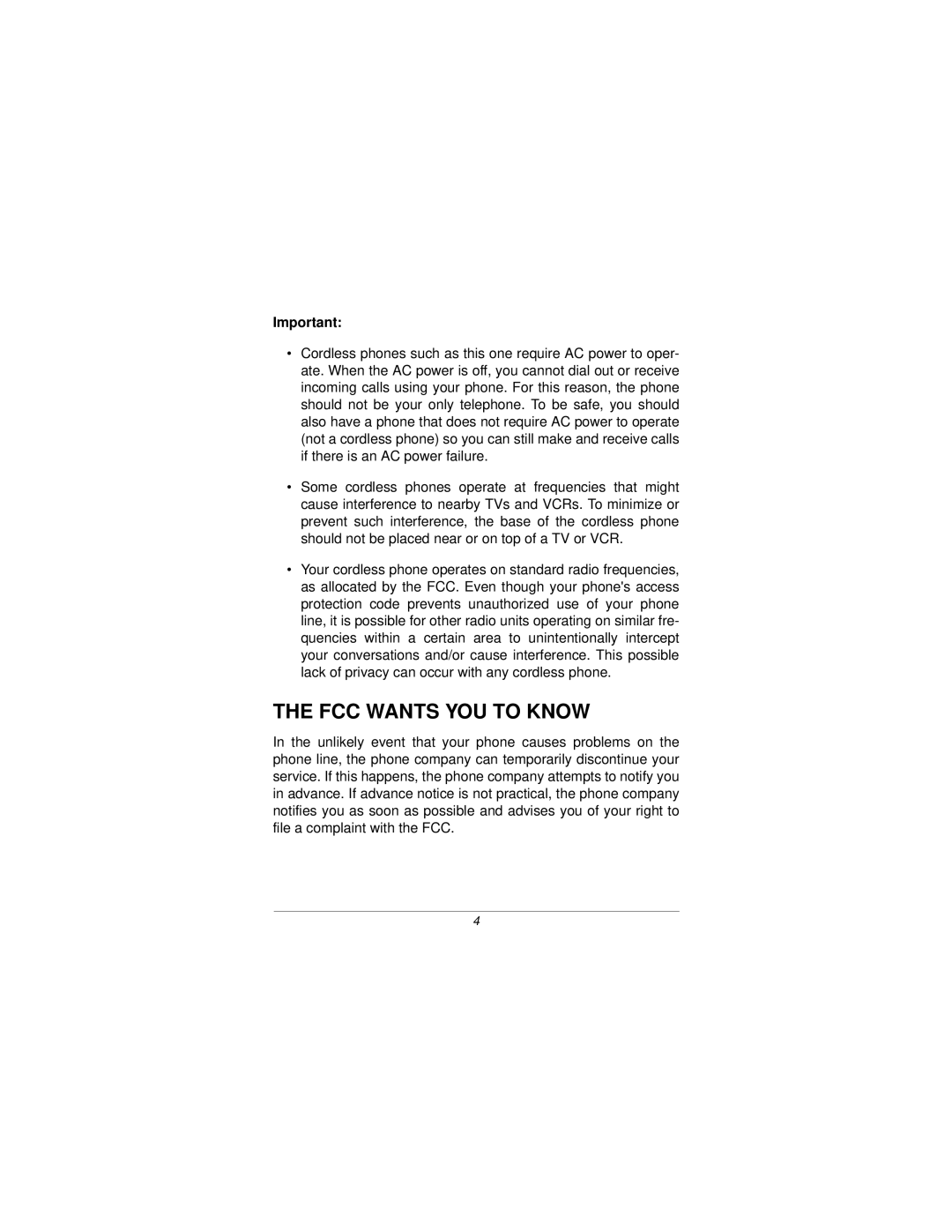Important:
•Cordless phones such as this one require AC power to oper- ate. When the AC power is off, you cannot dial out or receive incoming calls using your phone. For this reason, the phone should not be your only telephone. To be safe, you should also have a phone that does not require AC power to operate (not a cordless phone) so you can still make and receive calls if there is an AC power failure.
•Some cordless phones operate at frequencies that might cause interference to nearby TVs and VCRs. To minimize or prevent such interference, the base of the cordless phone should not be placed near or on top of a TV or VCR.
•Your cordless phone operates on standard radio frequencies, as allocated by the FCC. Even though your phone's access protection code prevents unauthorized use of your phone line, it is possible for other radio units operating on similar fre- quencies within a certain area to unintentionally intercept your conversations and/or cause interference. This possible lack of privacy can occur with any cordless phone.
THE FCC WANTS YOU TO KNOW
In the unlikely event that your phone causes problems on the phone line, the phone company can temporarily discontinue your service. If this happens, the phone company attempts to notify you in advance. If advance notice is not practical, the phone company notifies you as soon as possible and advises you of your right to file a complaint with the FCC.
4
